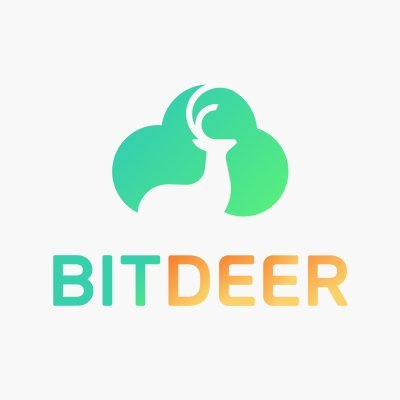About the company
We are a team of world class builders and researchers with expertise across several domains: Ethereum Protocol Engineering, Layer-2, Decentralized Finance (DeFi), Miner Extractable Value (MEV), Smart Contract Development, Security Auditing and Formal Verification. Working to solve some of the most challenging problems in the blockchain space, we frequently collaborate with renowned companies, such as Ethereum Foundation, StarkWare, Gnosis Chain, Aave, Flashbots, xDai, Open Zeppelin, Forta Protocol, Energy Web, POA Network and many more. We actively contribute to Ethereum core development, EIP’s and network upgrades together with the Ethereum Foundation, and other client teams.
Job Summary
How does the Internship work?
📍Many of these topics are new to me; can I have study time? 📍We allow the study time you require for anything related to what we do. 📍What are the working hours? 📍Our working hours are flexible to suit the needs of the individual. You must be available for a minimum of 20 hours per week to get the best out of the internship program. 📍Where is it located? 📍We are a globally distributed team, and we are a remote-first organization. Our entire team works fully remotely. 📍Is it paid? 📍Yes, our internship program is paid. You will either be paid your country’s national minimum wage or $6.25 per hour, whichever is greater. NB: There are certain countries where we have some difficulty paying you directly in fiat currency i.e. dollars or GBP. For these countries, you will be paid in cryptocurrency. Please speak to a member of our team to confirm if this will affect you. 📍When does it start? 📍Our internship program is open all year round, and you can apply anytime. 📍What is the duration of the internship? 📍The internship duration is flexible and can range from 1-3 months, depending on the availability of the individual. Most of our interns stay in the program for the full three months. 📍Is it possible to extend the duration of the internship? 📍The internship program has a set duration and cannot be lengthened or extended beyond the specified time frame. 📍Do you hold a daily stand-up meeting? 📍Yes. Each team holds a daily stand-up meeting to discuss what each team member is working on, and it is an opportunity to ask questions. 📍Will I have a mentor? 📍Yes. All interns are assigned a mentor with whom they can seek help and guidance. 📍What tool do you use for communication? 📍We use Slack daily, and it is our primary medium of communication. All interns are added to our Slack workspace. 📍What teams can I work with? 📍Throughout the internship, you can choose to work in one or more of the following groups depending on your skills, knowledge, and preference: 📍Nubia https://www.cairo-lang.org/ https://ethereum.org/en/developers/docs/layer-2-scaling/ Team Nubia develops tools for StarkNet, a layer 2 scaling solution. The team also works with protocols like Aave to port their codebase to StarkNet. Some of the tools developed by Nubia that you might have heard of are:
📍Warp - compiler from Solidity to Cairo 📍Voyager - block explorer for StarkNet 📍Juno - full-node client for StarkNet. 📍Skills that you will use and learn at the Nubia team include but are not limited to: 📍Low-level programming (assembler skills, C / embedded devices programming), CairoLang 📍Compilers / LLVM / assembly code / runtimes 📍Ethereum Virtual Machine (EVM) 📍Abstract algebra 📍Cryptography 📍Zero-Knowledge Proofs 📍Solidity programming 📍Financial mathematics (Options pricing, Monte Carlo simulations) 📍Trantor Trantor is a group of tech-savvy blockchain & financial professionals that specialize in Technical Due Diligence (TechDD), DeFi Research, and Data Solutions for Institutional Clients entering and expanding in the blockchain & DeFi space. 📍Skills that you will use and learn in the Trantor team include but are not limited to: 📍DeFi Research 📍Academic writing 📍Business writing 📍Technical writing 📍How to perform the research professionally and factually 📍Discover and detect valuable information from Crypto Twitter, Community Discord, and Protocol Forums 📍Research tools (Parsec, Nansen) 📍Technical Due Diligence 📍How to investigate and evaluate various types of projects based on data and publicly available information 📍How to see the business value in proposed products & protocols 📍What are the most common Tokenomics models, and what are their principles 📍Understand best practices of Risk Management 📍How to communicate with internal & external stakeholders 📍Data Solutions 📍Building data analytics tools while using on-chain and off-chain data (Clouds, SQL, Python, data scrapping, data standardization, data orchestration, various blockchains, DeFi Lama, Elastic) 📍Data visualization (Kibana, Metabase, Graphana, Dune Dashboards, Nansen Dashboards, Parsec Dashboards, Google Sheets) 📍Data integration from external sources (REST and non-REST APIs, data feeds, data parsers) 📍Data Infrastructure set-up (Clouds, VMs, DBs) 📍Mentoring, leadership, and coaching 1:1 session with more senior Analysts and Researchers 📍Continuous, open, and transparent feedback based on facts and quantitative factors 📍Workshops, brainstorming, and design team sessions 📍Regular team meetings to keep the information flow smooth and stable 📍Nineveh (Cryptography Research) 📍The Cryptography Research team at Nethermind leverages both theory and implementations to improve, build or break protocols related to cryptography and blockchain technology. The team’s projects include zero-knowledge proofs, Distributed 📍Validator Technology, decentralized identity/verifiable credentials, liquid staking on Ethereum, and non-deterministic programming (specifically, Cairo programming).
Skills that you can use and learn working with the Cryptography Research team include:
📍Cryptography 📍Rust/C++/Cairo programming 📍Understanding of blockchain consensus protocols 📍Technical due diligence on novel blockchain projects 📍Communicating research concepts through technical writing 📍Smart-contract implementations, especially those related to zk-proofs 📍Theoretical analysis and implementation of both STARKs and SNARKs 📍Abstract algebra and its applications to cryptography and zero-knowledge 📍Understanding and designing building blocks in Ethereum, such as Distributed Validator Technology, decentralized identity, and liquid staking, among others
Our team is looking for two kinds of people:
📍Cryptography enthusiasts who would enjoy analyzing, breaking, and designing cryptographic schemes. 📍Engineers with some background in cryptography who enjoy making proof of concepts of novel cryptographic protocols, extending cryptographic libraries, and finding vulnerabilities in existing implementations.
A few of the projects Nineveh worked on:
📍Hybrid proof systems from SNARKs and STARKs. In this project, we combine techniques from SNARKs and STARKs to build hybrid proof systems enjoying the bests of both worlds. SNARKs allow for short (constant-size) proofs and efficient verifiers; on the other hand, they require a trusted setup. zkSTARKs are transparent (don’t rely on a trusted setup) and have efficient prover while paying the price of longer proof size (logarithmic to the size of the proven statement) and verifier’s complexity. We investigate the use of STARK-related primitives like FRI to give zkSNARKs more efficient provers and reduce security assumptions used. In the near future, we plan to implement our hybrid schemes to reveal the concrete efficiency gains our approach brings. 📍Secure storage for mnemonic keys. A common problem with using secret keys is that they may be stolen or lost, causing, for example, the loss of access to staked funds. We are building an application that allows users to securely distribute the key into so-called shares. Only a large enough set of shares can be used to reconstruct the secret, and someone who knows too few secret shares learns nothing. We achieve that by using Shamir’s secret sharing scheme. Notably, both the secret and the shares are represented by an easy-to-remember mnemonic. 📍Security analysis of proof systems. In this project, we analyze the security properties of existing zkSNARKs to verify whether they are sufficiently secure for such complex environments as blockchains. To that end, we use provable security methods. Additionally, we analyze existing zkSNARKs and name their security gaps. We show where efficiency-oriented efforts make proof systems unusable due to security vulnerabilities.





